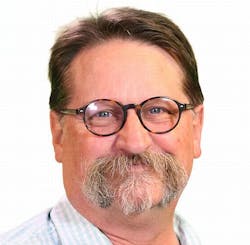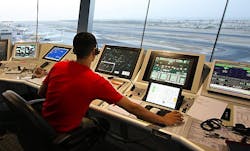Industry betting on continued growth of safety-certifiable COTS embedded computing market
Meeting the Design Assurance Levels (DAL) or RTCA DO-254 and EUROCAE Document ED-80 is a requirement of aviation authorities in the U.S. Europe, and other areas around the world for flight hardware operating in commercial airspace.
While military systems designers so far mostly have been able to avoid RTCA DO-254 and EUROCAE ED-80 and their DAL A, B, C, D, and E guidelines, embedded computing experts are betting that won't last much longer, and are positioning themselves for a future in commercial and military electronics where safety-certifiable hardware is a normal part of doing business.
One of the biggest developments in this area came last week when Mercury Systems in Chelmsford, Mass., catapulted itself into the safety-certifiable community with its acquisition of CES Creative Electronic Systems S.A. in Grand-Lancy, Switzerland.
While Mercury had not been a major supplier of safety-certifiable hardware, CES has been one of the embedded computing industry's most aggressive players offering small-form-factor rugged embedded computing products that meet the stringent requirements of DO-254 DAL A and B.
Related: Small-form-factor embedded computing aims at cost and size constraints
With its acquisition of CES, Mercury now steps up as a major supplier of safety-certifiable hardware alongside competitors the Curtiss-Wright Corp Defense Solutions Division in Ashburn, Va.; Abaco Systems in Huntsville, Ala.; CERTON in Melbourne, Fla.; and SYSGO AG in Klein-Winternheim, Germany.
As the U.S. government, commercial air carriers, and other safety-critical aircraft operators increase their demands for safety-certifiable components and subsystems as expected, these companies won't remain alone in the safety-certifiable embedded computing market.
Opportunities in this area are likely to expand quickly. Safety-certifiable electronics COTS components or subsystems that include data artifact packages that are necessary for eventual certification to DO-254 and EUROCAE ED-80. These artifact packages can ease and speed the use of COTS components for aircraft that will operate in commercial airspace.
DO-254 and EUROCAE ED-80 are electronics guidelines that define electronics components and test methods to ensure safety in commercial, military, and general aviation aircraft that operate in commercial airspace throughout the world.
These guidelines and test methodologies are administered by the Radio Technical Commission for Aeronautics (RTCA) Inc. in Washington, and the European Organization for Civil Aviation Equipment (EUROCAE) in Lucerne, Switzerland.
The U.S. Federal Aviation Administration (FAA) in Washington and other civil aeronautics authorities throughout the world subscribe to and enforce these guidelines in an effort to make flight in commercial airspace as safe as possible.
DO-254 and EUROCAE ED-80 define five design assurance levels, commonly referred to as DAL, that describe how critical these components are for safe flight. The different DAL levels progressively describe components whose importance ranges from extremely important to trivial for safe flight.
Offering COTS embedded computing equipment that's ready for safety certification is an attractive option for systems integrators who have an eye on commercial aviation and military systems like unmanned aerial vehicles (UAVs) that will fly through commercial airspace alongside commercial passenger and freight aircraft.
It's a possibility that the guidelines of DO-254 and EUROCAE ED-80 eventually will see broader application to safety-critical applications on land and at sea, as well as in the air. It that happens, look to see safety-certifiable move from a promising to an explosive market.
Mercury executives with their acquisition of CES are betting on this. Other embedded computing companies are, as well.
Learn more: search the Aerospace & Defense Buyer's Guide for companies, new products, press releases, and videos

